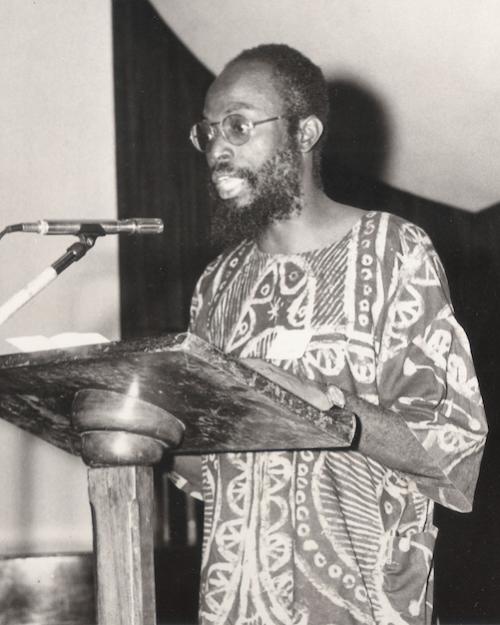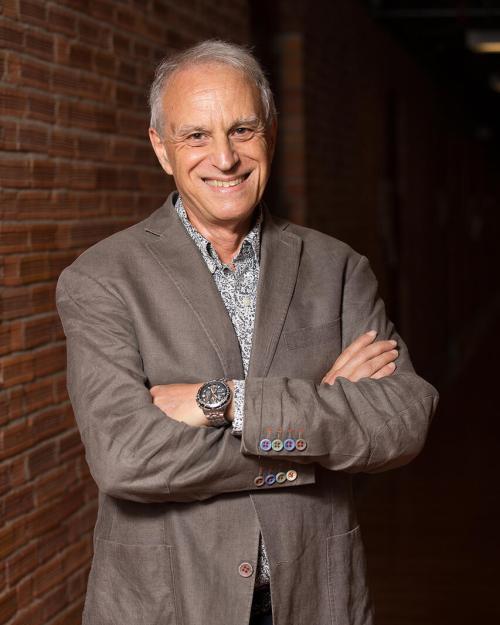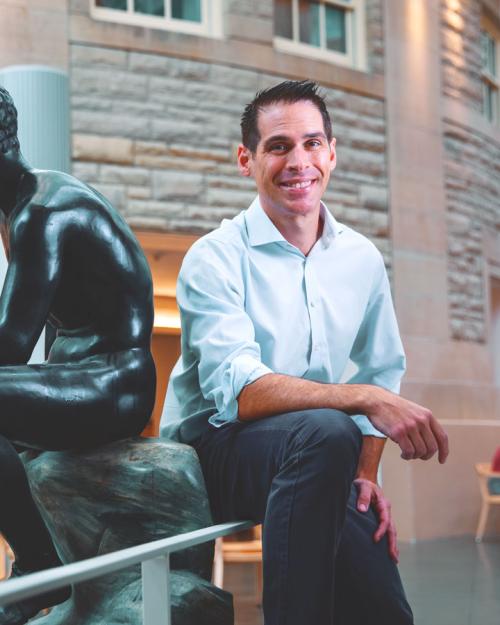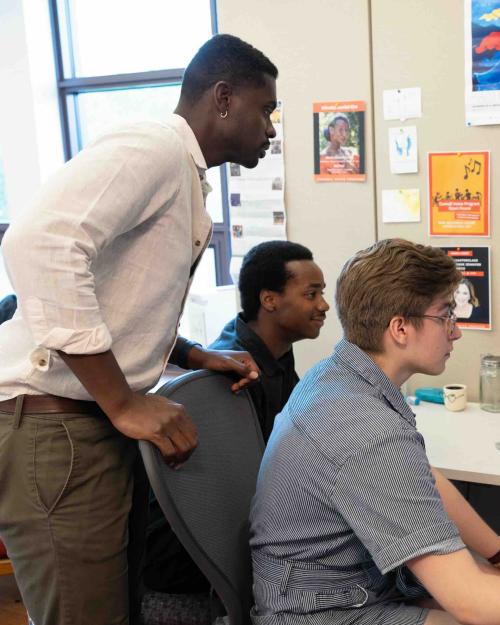Peek into various labs on campus during the summer and you can quickly get an idea of the diversity of research pursued by Cornell faculty.
In Goldwin Smith Hall, classics and information science majors are working with faculty on preserving and digitizing valuable 19th century lexica of classical Greek authors; in Lincoln Hall, music majors are working on a website to introduce the world to Haitian classical music performers and composers; and in Weill Hall, computational biologists are running computer simulations to help researchers better understand genetic mutations.
In the College of Arts & Sciences, more students can afford to stay on campus to work in these faculty labs during the summer thanks to generous alumni who fund the Nexus Scholar Program in the College. This year, 92 students were chosen to participate.
The program, which provides hourly salaries for students, is an entry point into undergraduate research and prioritizes applicants who do not have significant research experience. Along with their lab work, students take part in professional development workshops, career exploration events and meet other students who are passionate about learning.
Uncovering genetic impacts
Nicholas Yap ’27 is working with computational biologist April Wei, assistant professor (A&S and CALS), to investigate the way that human-Neanderthal admixture could have influenced various heritable traits being passed down to present-day humans.
A computer science major, Yap is running simulations based on the population history of both humans and Neanderthals with genetic mutations through time under various scenarios. Analyzing this data could potentially help scientists understand how introgression works between other species, as well.
Wei’s previous research uses a vast dataset from the UK Biobank consisting of genetic and trait information of nearly 300,000 Brits of non-African ancestry. She and other researchers have found that 4,303 genetic variants originated from Neanderthals that are likely to have a phenotypic impact in modern humans. Genetic traits they’re studying include a person’s stature and natural immune resistance to certain diseases.
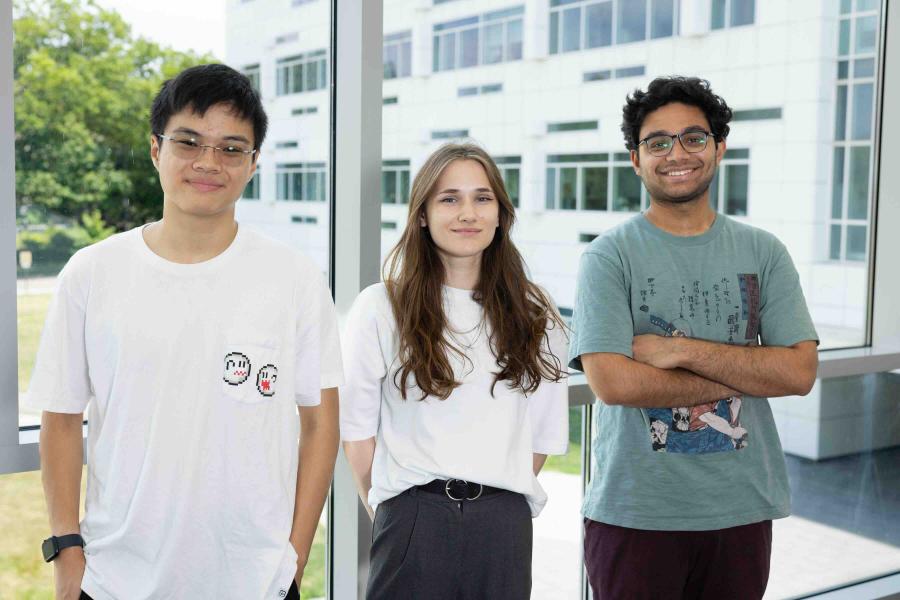
Maria Tiulchenko ’25 is also working with simulated data, but hers uses a set of simulated genomes to predict the local ancestry of a person.
“Genes are not just randomly passed to other generations, but they are passed in chunks,” said Tiulchenko, who is a physics major concentrating in computer science. “I can trace the population and trace the ancestry through different data sets and statistical analysis.”
Tiulchenko is very interested in genetics as a possible career. “I want to try to combine physics, biology and computer science,” she said.
Adita Syam ‘25 is working to build a phenotype simulator using a new data structure created in Wei’s lab that allows scientists to study millions of genomes. “This new structure makes working with genome data faster,” said Syam, who is majoring in mathematics and computer science.
“We are eager to prove we have a valuable data structure and add more features to the lab so others can adopt and use it,” Wei said. “It takes time and effort for people to realize it’s useful more broadly.”
Creating a useful Greek reference tool
Three students working with Jeffrey Rusten, classics professor emeritus (A&S), and Ethan Della Rocca, a graduate student in classics, have made great progress this summer taking physical and microfiche lexica to Aristophanes and Plato and turning them into a digital website – providing links to the text, translations into English, classification into word–families and semantic groupings and current bibliography.
Before the summer, Della Rocca created an initial digital version of the Aristophanes works using AI software, but since the text was handwritten in Greek, German and Latin, generating a new model requires more data.
Darby Bayne ‘26, Charlotte Behrend ’25 and Ryan Dwyer ’26 have been making corrections and augmenting that text all summer. Bayne is a computer science major, while Behrend and Dwyer are classics majors.
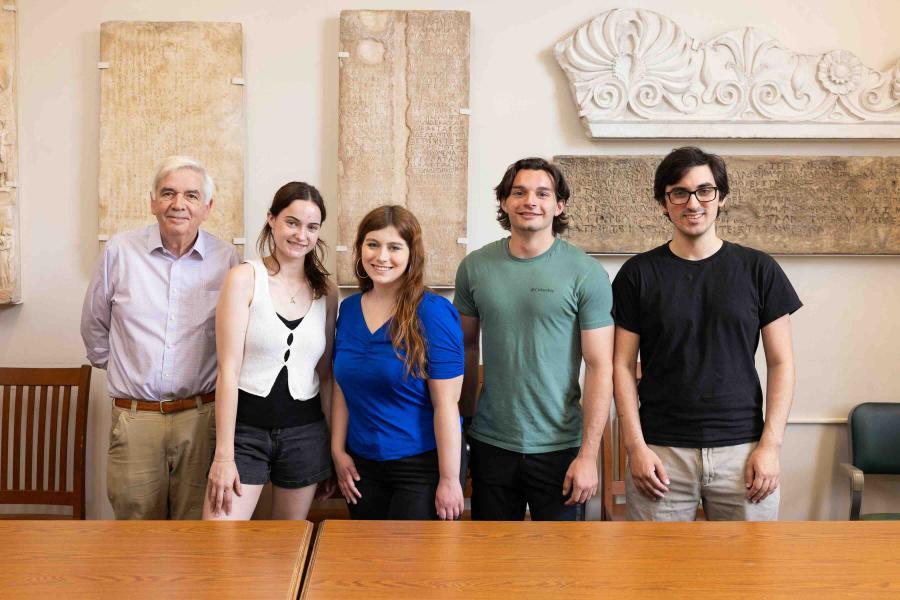
“This project started as a spreadsheet in 2017 and I have received a lot of help from undergrads and grad students over the years,” Rusten said. The lexica already developed can be found on lexeis.org but the group is also hoping to be included as a link on Logeion, a University of Chicago lexicon website.
“Research opportunities in classics for undergrads are few and far between,” Dwyer said, “and this one included a good meld of the history that is classics, along with new technology about how to interpret it.”
For Bayne, the project was “as far as you can imagine” from a typical coding summer internship, which she had last summer. “I wanted to pivot and try something different,” she said, adding that she created graphs and cluster maps with the words to identify patterns or interesting connections.
Behrend said working on the projects has “strengthened my convictions that this is what I want to study.”
Spreading the word about Haitian musical history
As a music and anthropology major, Anthony Washington ’25’s knowledge of all kinds of music and its history is vast, but he didn’t know a lot about 18th century Haitian music until he started working on research with Prof. Jean Bernard Cerin this summer.
“I didn’t realize there were Haitian Black composers doing incredible work in classical music,” Washington said, “or that (philosopher Jean-Jacques) Rousseau was a composer composing music for this Haitian song. It broadened my idea of what the world looks like.”
Cerin, assistant professor of music (A&S) and director of Cornell’s voice program, is the founder of the Lisette Project, a performance and educational effort focused on Haitian classical music. This summer, Washington and Zeke A.B. Lawrence ’25 are expanding content on the project’s website, which includes articles about composers, timelines, maps, musical scores and recordings.
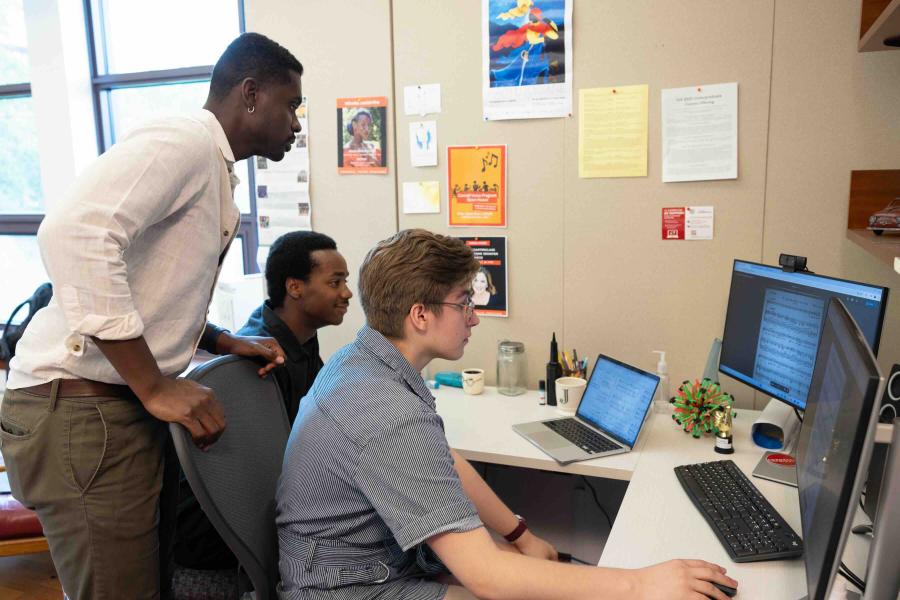
Lawrence and Washington have spent many hours transcribing, engraving and editing musical scores from hand-written manuscripts and and live performances of arrangements that Cerin and his musical collaborator Nicholas Mathew from the University of California at Berkeley have devised for their upcoming album and accompanying anthology of sheet music.
“In my work, I haven’t encountered this before, so I’m working to understand how a pianist might like to see the score,” said Lawrence, adding that the work helps them understand some of the foundations of other musical movements such as voodoo jazz in Haiti and how that may have impacted early American jazz music.
Cerin began the Lisette project in 2022 as an in-depth examination of “Lisette quitté la plaine,” the oldest surviving song text in early Haitian Creole written around 1757. The song tells the story of an enslaved man mourning the loss of his beloved who has been sold or sent away. The song has been recomposed multiple times throughout the centuries, with altered lyrics and melody.
The Lisette Project has commissioned a new version of the song, "Lisette fo'n kite La plaine" this time with lyrics written by Cerin's mother Lunise Jules and music by renowned Haitian guitarist Amos Coulanges to account for the modern day context in which Haitians are still fleeing their homes. The song will appear on the Lisette Project's upcoming album with the rest of the music the team has been editing and arranging this summer.
“I’m excited about the whole eco-system of music making — producing content for every part of the process of teaching and of performance,” Cerin said. “I am not your conventional historian, but I’m a musician who is definitely interested in history.”
